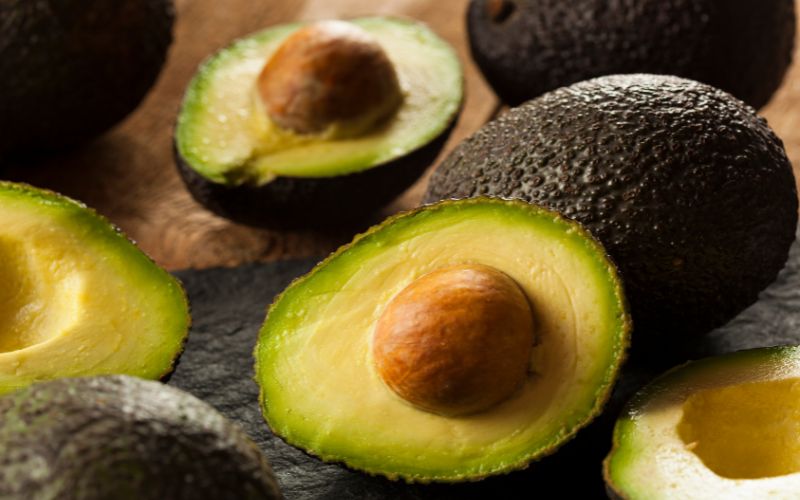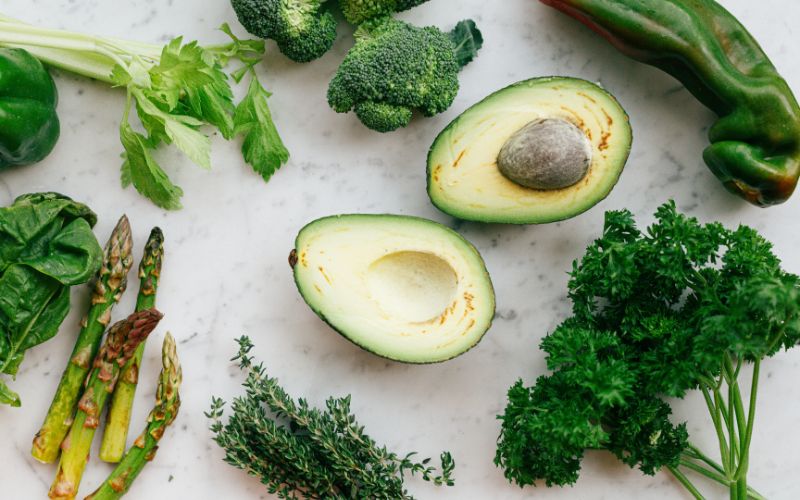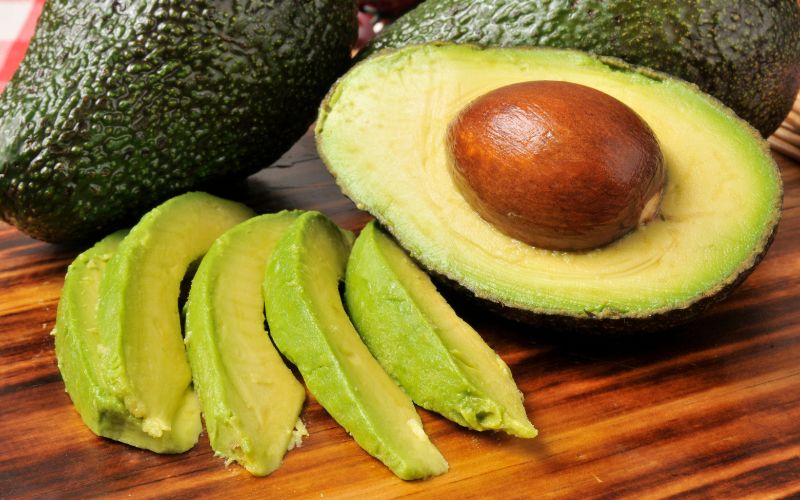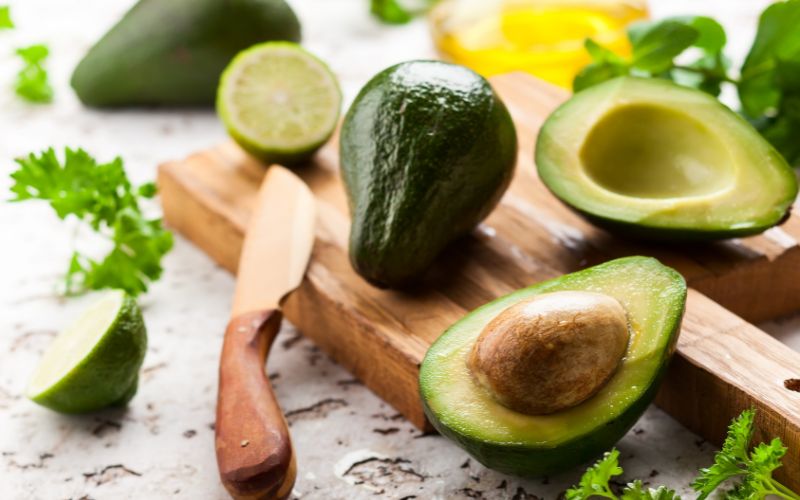Avocados have become incredibly popular in recent years, and it’s not hard to see why. These versatile fruits (yes, they are fruits!) have a creamy texture that adds a delicious touch to salads and sandwiches. But avocados offer more than just a tasty addition to your meals – they also provide a wide range of nutritional benefits that can contribute to your overall health and well-being.
So, what exactly makes avocados so nutritious? For starters, they are packed with healthy fats, specifically monounsaturated fats. These fats help reduce harmful cholesterol levels and promote heart health. Avocados are also a great source of dietary fiber, which can aid digestion and help you feel complete for extended periods.
But that’s not all – avocados are also rich in vitamins and minerals. They contain high levels of vitamins K, C, E, and B vitamins. These vitamins play a crucial role in supporting your immune system, promoting healthy skin, and aiding in the production of red blood cells.
In addition to their nutritional value, avocados are surprisingly easy to grow at home. Whether you have a large backyard or just a tiny balcony, you can cultivate your avocado tree and enjoy fresh avocados all year round. Growing avocados from seed requires patience and a little care, but the rewards are well worth it.
Let’s address the age-old question: Is an avocado a fruit or a vegetable? Despite its savory taste and culinary uses, avocados are technically considered fruits. This is because they develop from the ovary of a flowering plant and contain a seed. So the next time you’re enjoying avocado toast or whipping up some guacamole, remember you’re indulging in the goodness of fruit!
What is an Avocado?
Avocado, a genuinely one-of-a-kind fruit, belongs to the remarkable flowering plant family known as Lauraceae. With its vibrant green skin and succulent flesh, this fruit has various shapes, from pear-shaped to egg-shaped or even perfectly spherical.
Inside the avocado, you’ll discover a solitary large seed encompassed by a luscious, creamy, yellowish pulp. It’s no wonder avocados have earned the nickname “alligator pears” due to their rough skin and distinct pear-like appearance.

While avocados originally hail from Central America and Mexico, these fantastic fruits can now be found thriving in tropical climates all across the globe. Avocados have genuinely made themselves at home from various parts of South America to Africa, Australia, and Southeast Asia.
In recent years, avocados have experienced a surge in popularity, and it’s not difficult to understand why. These nutrient-packed wonders offer many health benefits and are incredibly versatile in the culinary world. Whether you’re whipping up a batch of delectable guacamole or indulging in trendy avocado toast, avocados are a delicious and nutritious addition to any meal.
What’s the difference between fruits and vegetables?
Before we answer the question “Is avocado a fruit or vegetable?”, it’s essential to understand the difference between fruits and vegetables. There are two forms of classifications: botanical and culinary. However, a single plant product can be classified as a fruit in one category and a vegetable in another.
To be classified as a botanical fruit, the item must contain a seed and develop from the flower of a plant. Examples of fruits include plums, apples, and grapes. On the other hand, any other edible part of a plant, such as leaves, stems, and roots, are considered vegetables. Examples of vegetables include spinach (leaves), celery (arrests), and carrots (seeds). The distinction seems straightforward, but when it comes to classifying in cooking, it’s all about taste. Fruits are known for their sweet or tart flavor and are commonly used in sauces or desserts. Vegetables taste savory and are often used in side dishes or as the main course.

There are exceptions to these rules. For instance, bell peppers are technically fruits because they contain seeds and grow from flowers. Some bell peppers may even taste sweet when eaten raw. However, in terms of cuisine, they are considered vegetables and can be stuffed with rice and beef or used as a crunchy addition to salads or stir-fries.
Is Avocado a Fruit or Vegetable?
Avocado, a beloved food often found in salads, sandwiches, and guacamole, has sparked a common question among many curious individuals: Is it a fruit or a vegetable? The answer to this query lies in the realm of botany. While most people assume avocados are vegetables due to their savory taste and culinary uses, they are, in fact, fruits. Specifically, avocados are classified as a type of berry known as a drupe. This classification places them in the same category as other fruits like peaches, plums, and cherries. Despite their creamy texture and mild flavor, avocados possess characteristics that align with the botanical definition of a fruit. They develop from the fertilized ovary of an avocado flower and contain a single seed, further solidifying their fruit status. So, the next time you ponder whether avocados are fruits or vegetables, rest assured that they are indeed delicious, versatile, and oh-so-nutritious!
What fruit family is avocado in?
Avocado is not just a fruit, but it is also considered a berry. To be classified as a berry, a fleshy fruit must come from an individual flower with at least one seed, although most berries have more than one. The seed of an avocado is the pit found at its center. In a suitable climate, you can grow an avocado tree from this seed, but unfortunately, avocados are not ideal for indoor fruit tree cultivation.
All avocados share these berry-like characteristics, although they vary in size from as small as chicken eggs to as large as four pounds. Some ripe avocados are green, while others have a dark purple color. The most common avocado in the United States is the Hass avocado, a delicious hybrid of Mexican and Guatemalan avocados. It is no surprise that both Mexico and Guatemala are known for their excellent guacamole.
Nutritional Benefits of Eating Avocados
Avocados are a nutritional powerhouse packed with vitamins A, C, and E, potassium, and fiber. They can reduce inflammation and improve digestion due to their high fiber content. Additionally, the healthy fats in avocados promote heart health when consumed in moderation. Enjoy the benefits of avocados for a healthier you!
How to Tell When Avocado is Ripe
The best way to determine if an avocado is ripe and ready for harvesting is by gently squeezing it. If the avocado has a little give when pressed, it is likely ripe and ready to be enjoyed. Another indicator of ripeness is a slight color change, as unripe avocados are typically greenish-yellow, and ripe avocados tend to be dark purple or black, indicating that the oils inside have developed, resulting in a creamy texture that avocados are known for.
Avocados are a genuinely unique food that can be enjoyed in various ways, as they can be classified as both a fruit and a vegetable, depending on how they are utilized in different dishes and recipes.
Now, let’s delve into the numerous nutritional benefits of consuming avocados.
Nutritional Benefits of Eating Avocados
Avocados, a nutrient-dense fruit with numerous health benefits, is a powerhouse of essential vitamins and minerals. Packed with a plethora of nutrients like vitamin K, folate, vitamin C, potassium, vitamin B6, and more, avocados are a must-have addition to your diet.

The presence of healthy fats in avocados is particularly noteworthy as they can help reduce cholesterol levels and improve heart health. But that’s not all! Avocados also play a vital role in providing the body with essential nutrients.
Take vitamin K, for instance. This nutrient is crucial for blood clotting and bone metabolism. Surprisingly, one avocado alone contains approximately 25% of the recommended daily vitamin K intake, ensuring you meet your body’s needs.
Folate, another essential nutrient found in avocados, is responsible for forming red blood cells in the body. It holds immense importance, especially for pregnant women, as it ensures proper development of their baby’s brain and spinal cord. Remarkably, a single avocado provides about 20% of the recommended daily intake of folate for adults.
Vitamin C, an antioxidant that shields cells from damage caused by free radicals, is also abundantly present in avocados. Consuming just half a cup of avocado can fulfill about 17% of your daily vitamin C requirement. This nutrient helps protect our cells from environmental pollutants and aids in maintaining optimal health.
Potassium, another valuable mineral found in avocados, is crucial in maintaining the fluid balance in our body’s tissues and organs. Additionally, it regulates nerve signals between muscles and nerves, ensuring smooth movement coordination. Astonishingly, an average-sized avocado contains approximately 15% of your required daily potassium per serving size.
Vitamin B6, often associated with energy production, aids in converting carbohydrates into glucose. This glucose fuels our bodies to perform everyday tasks like walking or thinking clearly. Moreover, vitamin B6 also regulates mood swings by influencing hormones such as serotonin and dopamine. An average-sized avocado contains about 10% of the recommended daily intake of vitamin B6 per serving size.
With such an impressive nutritional profile, including avocados in your diet is a wise choice. These fruits provide you with a wide range of essential vitamins and minerals vital for your overall well-being.
Now that we have explored avocados’ various health benefits let’s delve into the fascinating world of growing these nutritious fruits right in the comfort of your home.
FAQs
Why is an avocado a fruit and not a vegetable?
The reason avocados are considered a fruit is due to the presence of a seed enclosed within the pericarp, composed of three distinctive layers. Among these layers, one is the luscious, consumable layer that classifies avocados as a fruit. Regarding fleshy fruits, there are two main classifications: drupes and berries. In the case of avocados, they are categorized as berries since they possess the desirable fleshy edible layer. This unique characteristic sets avocados apart and solidifies their place within the berry category.
Why is avocado a vegetable?
According to botanists, avocados are indeed classified as fruits. However, it is interesting that vegetables are often designated for nutritional and culinary reasons, a classification even recognized by the United States Department of Agriculture (USDA). This unique categorization stems from the fact that while avocados are biologically fruits, their nutritional composition aligns more closely with that of vegetables. Therefore, their kitchen versatility and distinct nutrient profile have led to this intriguing labeling discrepancy.
Why is avocado a super fruit?
Avocado is a superfood due to its abundance of essential nutrients and antioxidants. Not only does it contain folic acid, Omega 3, magnesium, potassium, lutein, and fiber, but it is also a rich source of vitamins A, C, D, E, K, and various B Group vitamins. With such a wide range of beneficial compounds, avocado is a nutritional powerhouse.
Why can only humans eat avocado?
Avocado pits, also known as seeds, are endowed with a relatively minuscule quantity of the fungicidal toxin persin. This toxin is found within the outer layer, commonly referred to as the skin, as well as the bark and leaves of the avocado tree. It is due to this particular toxin that animals are unable to indulge in the consumption of avocados. Remarkably, analogous to the cyanide content in apples, the avocado pits only harbor a petite dose of the toxin.
When should I eat avocado, morning or night?
There is no specific time to eat avocado, as it can be enjoyed at any point in the day. It serves as a delicious and nutritious addition to any meal. Consuming avocado during the day offers a range of advantages, such as enhanced blood flow and lower blood sugar levels. Additionally, it aids in keeping your calorie intake under control. On the other hand, eating avocado at night can contribute to a better night’s sleep.
How many avocados per day?
To fully enjoy the numerous health advantages of avocados, consuming one-half to one whole avocado daily is recommended. Indulging in more than one avocado per day typically has no significant adverse effects; however, it is essential to note that avocados’ high-fat content might lead to minor digestive unease. Therefore, one should be mindful of tolerance to ensure optimal well-being.
What are the five health benefits of avocados?
- Avocados are nutritionally rich. Avocados are an example of nutrient-dense food, with half the fruit counting towards your five-a-day.
- It may support heart health.
- It may help to lower cholesterol.
- It may help to regulate appetite.
- It may help keep the eyes healthy.

